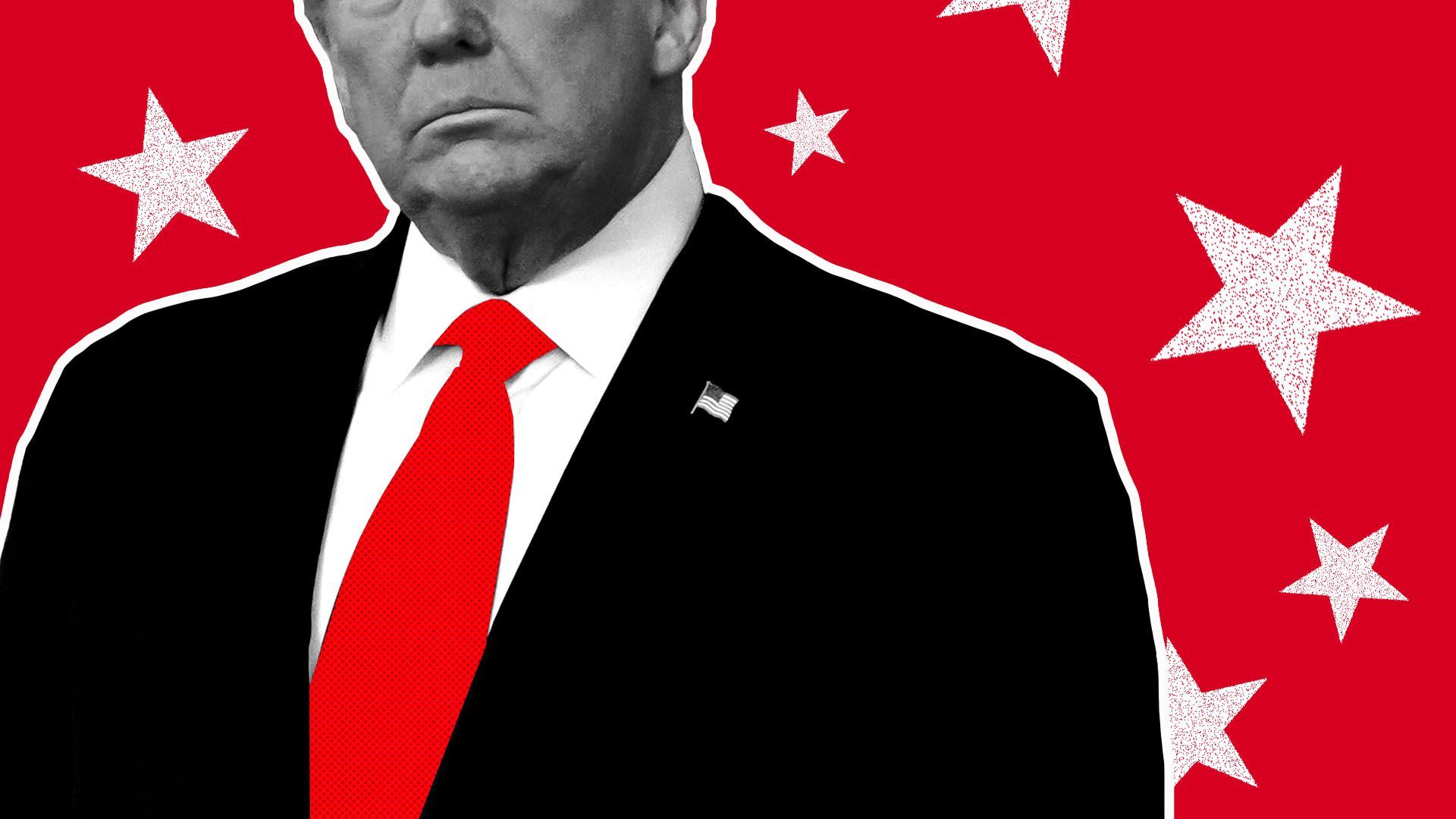Trump's 75-day finale, fully unrestrained
Add Axios as your preferred source to
see more of our stories on Google.

Photo illustration: Sarah Grillo/Axios. Photo: Joshua Roberts/Getty Images
If President Trump is on his way out the door, he'll have almost limitless power to reward his friends, settle scores and stack boards and commissions with his allies during his final days in office.
Why it matters: After defeat, there are no constraints on ordinary presidential powers between the election and the inauguration. Trump has shown a willingness to stretch the norms of what has been done and what can be done. So expect him to go out the way he came in.
- Executive clemency: Presidents can wipe away or minimize past offenses with pardons, commutations, remissions or reprieves — like when Bill Clinton pardoned donor Marc Rich despite indictments over tax evasion and wire fraud.
- “Burrowing in”: Presidents can convert political appointees to career employees, and under certain circumstances, presidents can make recess appointments so personnel can serve into the succeeding administration.
- “Midnight rulemaking”: Outgoing presidents often rush to finalize the rules that administrations write to enact laws passed by Congress.
Don't forget: Trump can still fire people — and as Axios' Jonathan Swan and Alayna Treene have reported, he was already planning to push out FBI Director Christopher Wray, CIA Director Gina Haspel and Defense Secretary Mark Esper if he got a second term.
- “It seems like an obvious point, but it’s really worth emphasizing that Donald Trump will still be president” until Jan. 20, said Max Stier of the Partnership for Public Service.
- Barack Obama sought to strengthen his legacy by filling as many federal posts as he could with people who would continue serving after he left office.
But, but, but: Most presidents work hard to ensure a seamless handoff to their successor, Stier said. “You can look to the outgoing (George W.) Bush administration — Bush to Obama — as the gold standard in how to do this best,” he says.
- Bush was still settling into office when terrorists struck on Sept. 11, 2001, so he didn’t want Obama to be vulnerable with the ongoing war in Afghanistan, or in the event of another terrorist strike.
“Presidents who are leaving office usually do not feel wholly unrestrained; in fact, there is now a more immediate and pressing restraint: ‘What will history think of me?’” says John Burke, a retired University of Vermont professor who specialized in presidential transitions.
- “It might be tempting for him to fire those he deems disloyal, for example, but it will not serve him well over the long run. Pettiness is an expensive exercise.”
